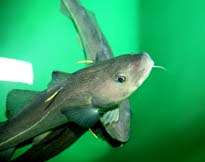Aid for sustainable fisheries is key to global food security

Lack of governance threatens global seafood supplies and the food security of billions of people who rely on fish for protein or livelihoods.
Increased aid from developed countries, earmarked specifically for supporting sustainable seafood infrastructure in developing countries, could improve food security, according to a policy paper by an international working group of 20 economists, marine scientists and seafood experts in the Feb. 12 issue of Science.
Professor Frank Asche at the University of Stavanger is part of the international research group.
“We need measures in order to safeguard the ecological balance in fisheries worldwide,” says Asche.
Seafood is a significant source of protein for nearly 3 billion people and is the planet’s most highly traded food commodity, contributing to the livelihoods of more than 560 million people.
To help safeguard future supply, “the price of seafood has to reflect the cost of maintaining ecosystem health in the countries that capture or farm most of it,” says Asche.
“Many imports are coming from developing countries that are not necessarily well-positioned to manage their resources sustainably.”
“In an ideal world, each country governs its own resources well and the seafood trade contributes to worldwide economic growth and food security. But that’s not the world we live in right now,” says Asche.
Developing countries need not consume all of their seafood production. They may generate more benefits by exporting it and using the earnings to purchase other foods, goods or services.
In their Science article, the researchers examine the complex environmental, political and economic factors that jeopardize global seafood supplies and livelihoods. Issues of resource ownership and governance are at the top of the list.
No one owns fish stocks or has sole control over what their catch limits should be, or what type of gear or practices can be used to catch them. This has pushed many stocks beyond maximum sustainable yields, and has led to the current precarious role of fisheries in food security.
Concurrently, “aquaculture (farming seafood) has great promise for enhancing food security but is also threatened when regulations fail to protect the supporting ecosystems,” says Frank Asche.
The authors of the Science paper, lead by associate professor Martin D. Smith at Duke University’s Nicholas School of the Environment, weigh the pros and cons of three policy options to sustain seafood production.
Trade policies such as import bans and tariffs could be used to punish countries that fail to meet sustainability standards, “but these are rather blunt instruments,” Smith says. “In the short run, you may end up hurting people who are the most vulnerable.”
Private incentives, such as ecolabeling, that raise the price of seafood to help pay for sustainable practices, are another option. But it’s not clear from existing studies if enough consumers will voluntarily pay more for seafood.
And raising the price of high-valued products such as shrimp or tuna, which are mostly exported to developed countries, could backfire. Consumers might then seek out less expensive alternatives that people in poor, developing countries depend on.
This may raise prices of low-valued products and put products with high nutritional value out of reach of the poorest of the poor.
A third option - allocating more foreign aid for sustainable infrastructure in developing countries - provides clear advantages, Smith believes.
By specifically earmarking aid for things like sustainable fishing gear, improved management, sustainable aquaculture facilities, or traceability systems to verify sustainability compliance, developed countries will foster food security and ecosystem health, and strengthen seafood trade, without causing short-term hardships to consumers or producers.
“We’re not suggesting that foreign aid for sustainability should replace other aid that contributes to food security,” professor Asche notes. “We’re just saying this is an option that is often overlooked.”
Provided by University of Stavanger















